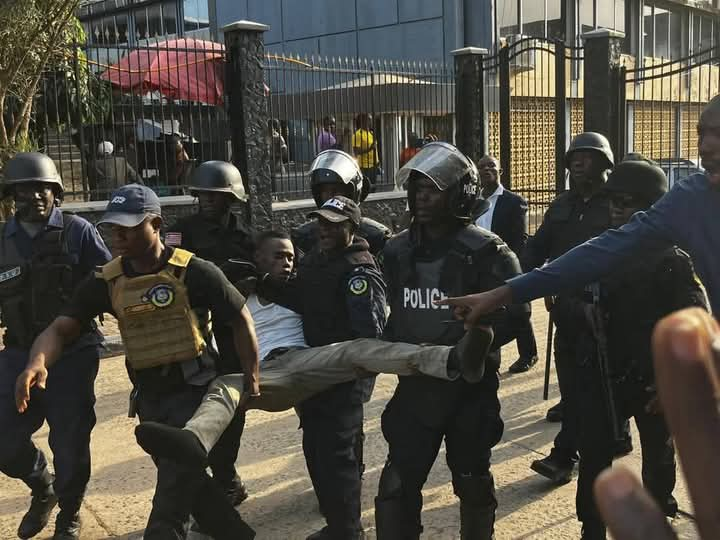The Liberian government is challenging a judge’s decision to release a suspect in the Capitol Building fire investigation, setting the stage for a legal battle over due process and investigative procedures. Thomas Etheridge, a staff member of embattled House Speaker Fonati Koffa, was arrested and detained for three days in connection with the fire. His lawyers filed a habeas corpus petition, arguing for his release due to lack of lawful grounds for detention. Judge Koboi Nuta granted the petition, releasing Etheridge to a guarantor to seek medical attention. However, the government is contesting this release, arguing that Judge Nuta overstepped his authority by releasing a flight risk who was already subject to a separate arrest warrant issued by the City of Monrovia. They further contend that the chosen guarantor is not impartial, potentially jeopardizing the integrity of the investigation.
The government’s petition for a writ of prohibition against both Judge Nuta and Etheridge effectively prevents the suspect from seeking private medical care, raising concerns about the suspect’s well-being and the government’s handling of the case. This legal maneuver has intensified the already charged political climate surrounding the fire investigation. The fire, which occurred amidst a power struggle within the legislature, has been deemed an act of arson, and numerous individuals, including opposition figures, have been arrested or named as persons of interest. The investigation itself has become a focal point of contention, with accusations of coercion and manipulation of evidence emerging.
Etheridge’s account of his detention further complicates the narrative. He alleges experiencing abuse, coercion, and the fabrication of evidence by security personnel during his three-day interrogation. He claims he was pressured to confess to involvement in the fire and related activities, with interrogators allegedly manipulating recordings and linking him to other suspects. He describes being threatened with sodomy if he didn’t comply with their demands. His account also implicates other individuals who he claims were also coerced into making false confessions. These allegations raise serious questions about the methods used by the investigators and the potential for false confessions in this high-profile case.
The government’s pursuit of a writ of prohibition against Judge Nuta and Etheridge signals a deeper conflict over the boundaries of judicial authority and the treatment of suspects in politically sensitive investigations. The government’s argument that the judge disregarded the existing arrest warrant and released Etheridge to a biased guarantor underscores their concern about his potential flight risk. However, the writ of prohibition also effectively restricts Etheridge’s access to medical care, which could be interpreted as a punitive measure. This raises questions about the balance between ensuring the integrity of the investigation and protecting the rights of the accused.
The Capitol Building fire, a devastating act of arson, occurred against the backdrop of political instability and power struggles within the Liberian legislature. The fire itself significantly damaged the Rotunda, the central chamber of the legislature, symbolizing the broader political turmoil gripping the nation. The subsequent arrests and investigation have further fueled tensions and exposed deep divisions within the government. Etheridge’s allegations of coercion and fabricated evidence add another layer of complexity to the already fraught situation.
The conflicting narratives surrounding the fire investigation and Etheridge’s detention highlight the challenges faced by Liberia’s justice system. The government’s actions raise concerns about potential overreach and the suppression of dissent. Etheridge’s allegations, if substantiated, point to serious flaws in the investigative process and the potential for human rights violations. The ongoing legal battle will not only determine the fate of Thomas Etheridge but also shape the public’s perception of the government’s commitment to due process and the rule of law in a highly politicized environment. The outcome will have significant implications for the future of Liberian politics and the pursuit of justice in the aftermath of the Capitol Building fire.














